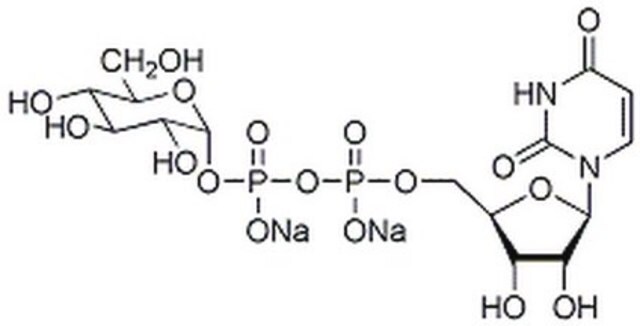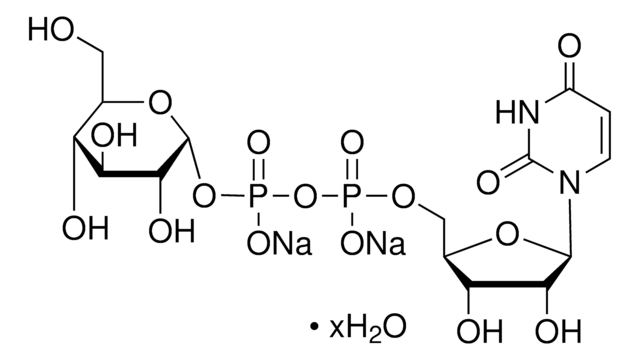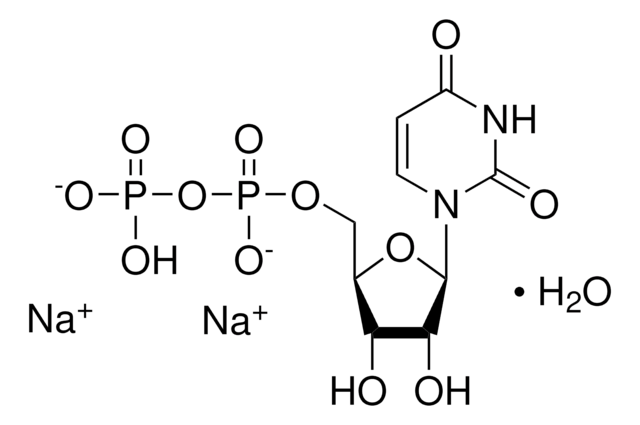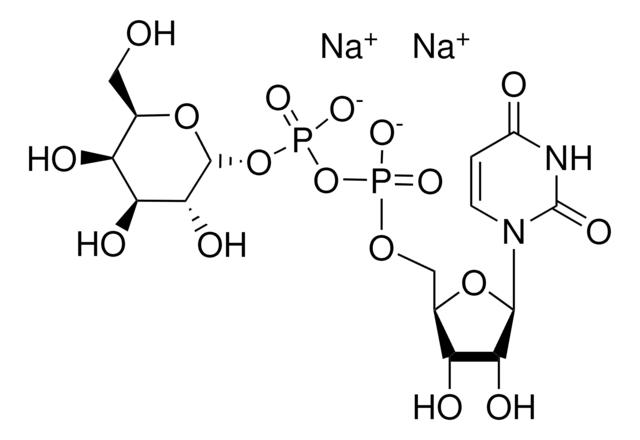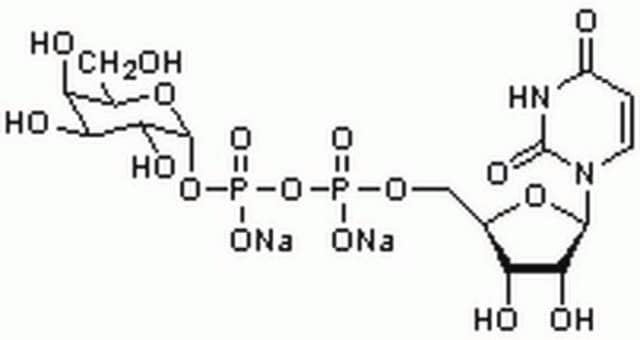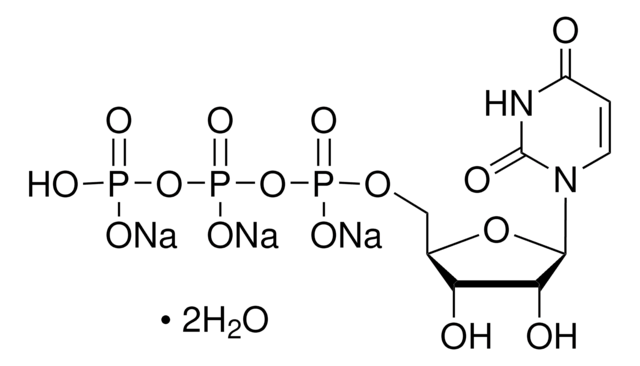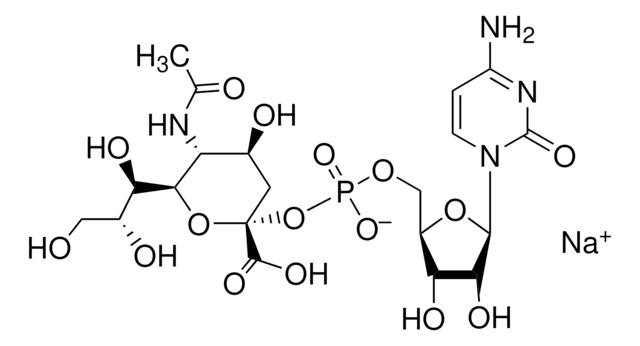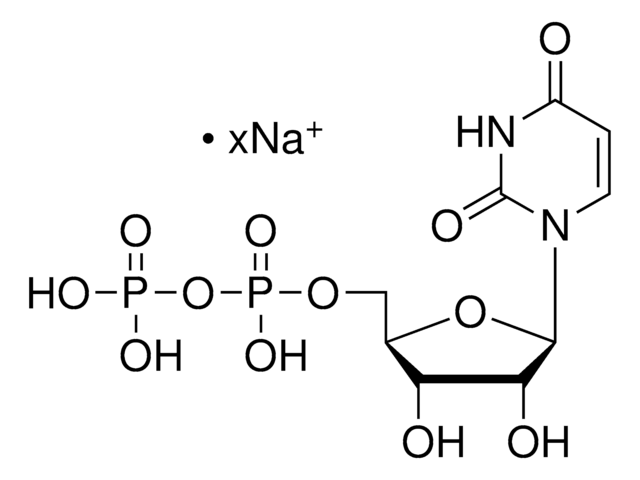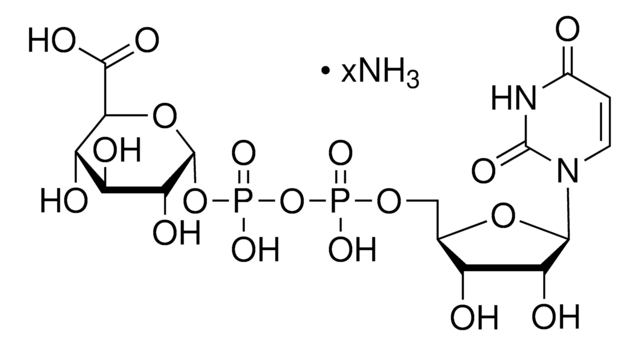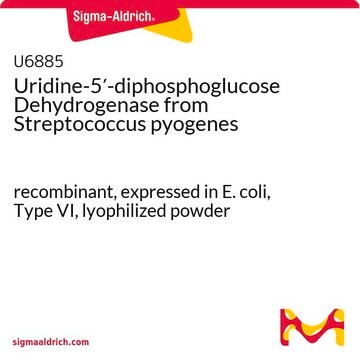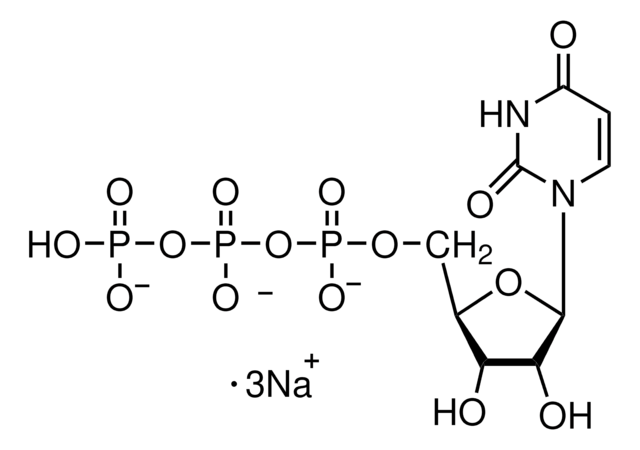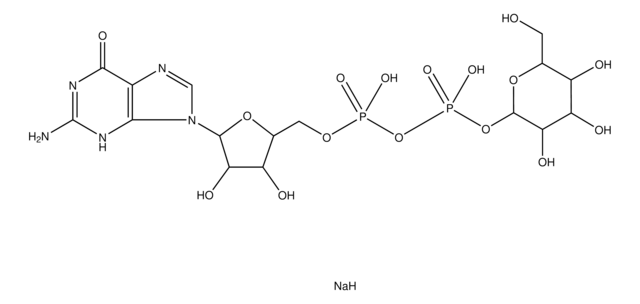94335
Uridine 5′-diphosphoglucose disodium salt
≥98.0% (HPLC)
Synonym(s):
UDP-D-Glucose disodium salt, UDPG, UDP-glc, Uridine-diphosphate-glucose disodium salt, Uridine[5’]diphospho[1]-α-D-glucopyranose disodium salt
About This Item
Recommended Products
biological source
Saccharomyces cerevisiae
Assay
≥98.0% (HPLC)
form
powder
impurities
≤5% solvent
≤8.5% water
solubility
H2O: 50 mg/mL, clear
storage temp.
−20°C
SMILES string
[Na+].[Na+].OC[C@H]1O[C@H](OP([O-])(=O)OP([O-])(=O)OC[C@H]2O[C@H]([C@H](O)[C@@H]2O)N3C=CC(=O)NC3=O)[C@H](O)[C@@H](O)[C@@H]1O
InChI
1S/C15H24N2O17P2.2Na/c18-3-5-8(20)10(22)12(24)14(32-5)33-36(28,29)34-35(26,27)30-4-6-9(21)11(23)13(31-6)17-2-1-7(19)16-15(17)25;;/h1-2,5-6,8-14,18,20-24H,3-4H2,(H,26,27)(H,28,29)(H,16,19,25);;/q;2*+1/p-2/t5-,6-,8-,9-,10+,11-,12-,13-,14-;;/m1../s1
InChI key
PKJQEQVCYGYYMM-QBNUFUENSA-L
General description
Application
- as a substrate in the enzymatic production of glycosides and their detection by liquid chromatography-mass spectrometry.
- as a substrate in the substrate screening and binding affinity measurements of the human CMP-Sia transporter.
Biochem/physiol Actions
Other Notes
replaced by
Storage Class Code
11 - Combustible Solids
WGK
WGK 3
Flash Point(F)
Not applicable
Flash Point(C)
Not applicable
Personal Protective Equipment
Certificates of Analysis (COA)
Search for Certificates of Analysis (COA) by entering the products Lot/Batch Number. Lot and Batch Numbers can be found on a product’s label following the words ‘Lot’ or ‘Batch’.
Already Own This Product?
Find documentation for the products that you have recently purchased in the Document Library.
Customers Also Viewed
Our team of scientists has experience in all areas of research including Life Science, Material Science, Chemical Synthesis, Chromatography, Analytical and many others.
Contact Technical Service